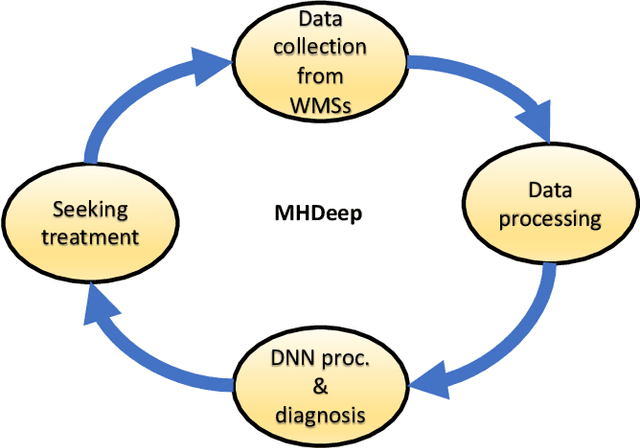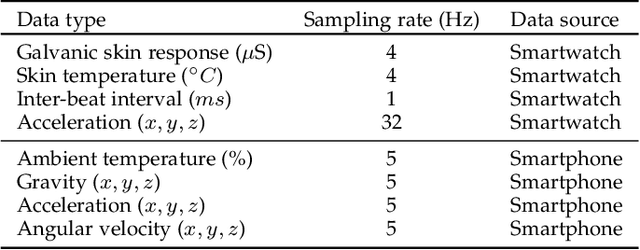MHDeep: Mental Health Disorder Detection System based on Body-Area and Deep Neural Networks
Paper and Code
Feb 20, 2021



Mental health problems impact quality of life of millions of people around the world. However, diagnosis of mental health disorders is a challenging problem that often relies on self-reporting by patients about their behavioral patterns. Therefore, there is a need for new strategies for diagnosis of mental health problems. The recent introduction of body-area networks consisting of a plethora of accurate sensors embedded in smartwatches and smartphones and deep neural networks (DNNs) points towards a possible solution. However, disease diagnosis based on WMSs and DNNs, and their deployment on edge devices, remains a challenging problem. To this end, we propose a framework called MHDeep that utilizes commercially available WMSs and efficient DNN models to diagnose three important mental health disorders: schizoaffective, major depressive, and bipolar. MHDeep uses eight different categories of data obtained from sensors integrated in a smartwatch and smartphone. Due to limited available data, MHDeep uses a synthetic data generation module to augment real data with synthetic data drawn from the same probability distribution. We use the synthetic dataset to pre-train the DNN models, thus imposing a prior on the weights. We use a grow-and-prune DNN synthesis approach to learn both the architecture and weights during the training process. We use three different data partitions to evaluate the MHDeep models trained with data collected from 74 individuals. We conduct data instance level and patient level evaluations. MHDeep achieves an average test accuracy of 90.4%, 87.3%, and 82.4%, respectively, for classifications between healthy instances and schizoaffective disorder instances, major depressive disorder instances, and bipolar disorder instances. At the patient level, MHDeep DNNs achieve an accuracy of 100%, 100%, and 90.0% for the three mental health disorders, respectively.
 Add to Chrome
Add to Chrome Add to Firefox
Add to Firefox Add to Edge
Add to Edge